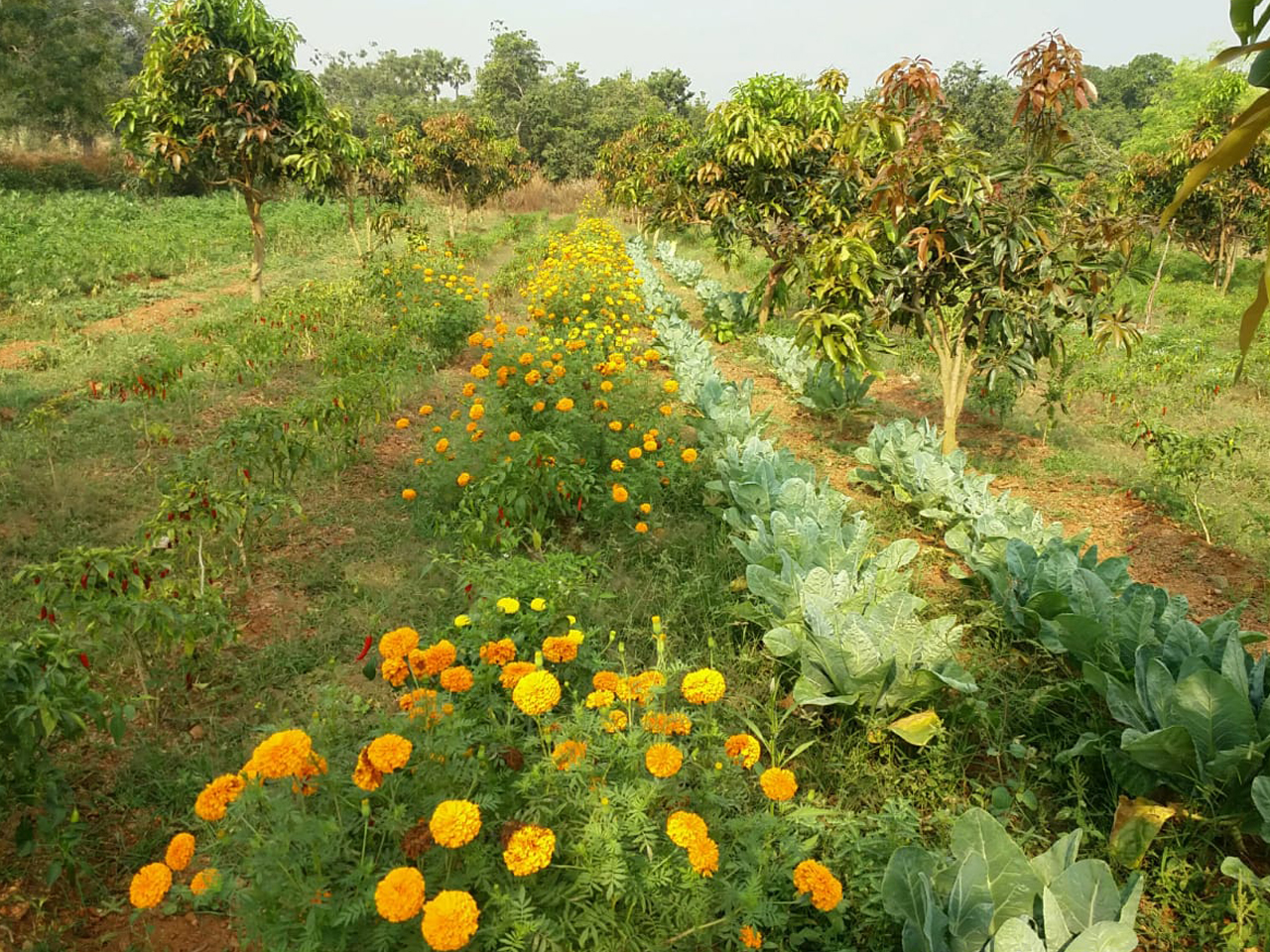Research and Projects
- Home
- Research and Projects
ONGOING MAJOR PROJECTS
1. Andhra Pradesh Community Managed Natural Farming (APCNF)
The Government of Andhra Pradesh introduced Zero Budget Natural farming (ZBNF) in 2016 as an alternative to chemical based agriculture. Later on, the name was changed to Andhra Pradesh Community Managed Natural Farming (APCNF). APCNF is a paradigm shift in agricultural development. The main obiective of APCNF is to make agriculture economically viable, agrarian livelihoods profitable and climate resilient. APCNF aims to reduce cost of cultivation, enhance yields. increase incomes, reduce risks, and protect agriculture sector from uncertainties of climate change by promoting the adoption of an aqro ecology framework. APCNF is supported by the Government of India through Rashtriya Krishi Vikas Yojana (RKVY), and Prime Minister Krishi Vikas Yojana (PKVY). APCNF is also supported by Azim Premji, Philanthropic lnitiatives (APPI), Sustainable lndia Finance Facility (SIFF), an innovative partnership between UN Environment, BNP Paribas the World Agro Forestry Centre and KfW. A study to IDS has been assigned by Rythu Sadhikara Samasta (RySS), Department of Agriculture, Government of Andhra Pradesh for assessing the impact of APCNF on the farming and farmers in Andhra Pradesh. This study evaluates advantages of natural farming and tracks the changes in APCNF farming over time.


2. Andhra Pradesh Micro Irrigation Project (APMIP)
Third Party field inspection of Micro irrigation Systems Installation under APMIP in state of Andhra Pradesh Govt. of Andhra Pradesh has been aiding under APMIP on Micro Irrigation systems of i.e., Drip and Sprinklers to increase water use efficiency, productivity & fertilizer efficiency and thereby increasing the income of the farmers. The Department of Horticulture Government of Andhra Pradesh has called for 3rd party evaluation. This task has been assigned to lDS, Andhra Pradesh. The purpose of the 3rd Party Inspection is to provide verification and ensure technical quality assurance for the Ml systems installed under the project. These efforts provide an opportunity for better interaction among the stake holders leading to more productive and sustainable usage of resources created through the scheme. The feedback on the implementation of the project may facilitate appropriate corrective action at the appropriate time.
Book Projects (completed)
- 1. S R Hashim, Rahul Mukharjee and Brajaraja Mishra, Perspectives on Inclusive Policies for Development in India - ln Honour of Prof R. Radhakrishna, Springer Nature, Singapore, (Forthcoming)
- 2. Prof. E. Nagabhushana Bao, Prof. L Sudarsana Fao, Prof. M. Sundara Rao {lDS and CESS), Livelihoods of Vulnerable Communities in Andhra Pradesh - getting ready for publication.
Book Projects (On Going)
- 1. IDSAP, Natural Farming in Andhra Pradesh, Prospects, and Challenges - Gettinq ready for publication
- 2. J. M. Naidu, Tribal Communities, Volume ll
- 3- Siva Reddy. Tribal Communities Volume lV
- 4. Venkatesh Narayan, JNu, Education
Ongoing:
- 1) Assessing the Impact of Andhra Pradesh Community Managed Natural Farming (APCNF): A Comprehensive Approach using Crop Cutting Experiments, 2021 -22
- 2) Assessing the Impact of Andhra Pradesh Community Managed Natural Farming (APCNF): A Comprehensive Approach using Crop cutting Experiments, 2020-21.
- 3) Third Party field inspection of Micro irrigation Systems Installations under APMIP in the State of Andhra Pradesh
- 4) Skill Development to add value addition to NTFP among Tribes
Completed
- 1) Ethnographic study of Dulia tribe residing in Andhra Pradesh.
- 2) Video documentation of four tribal communities viz. Jatapu, Koya Valmiki and Nakkala residing in Andhra Pradesh.
